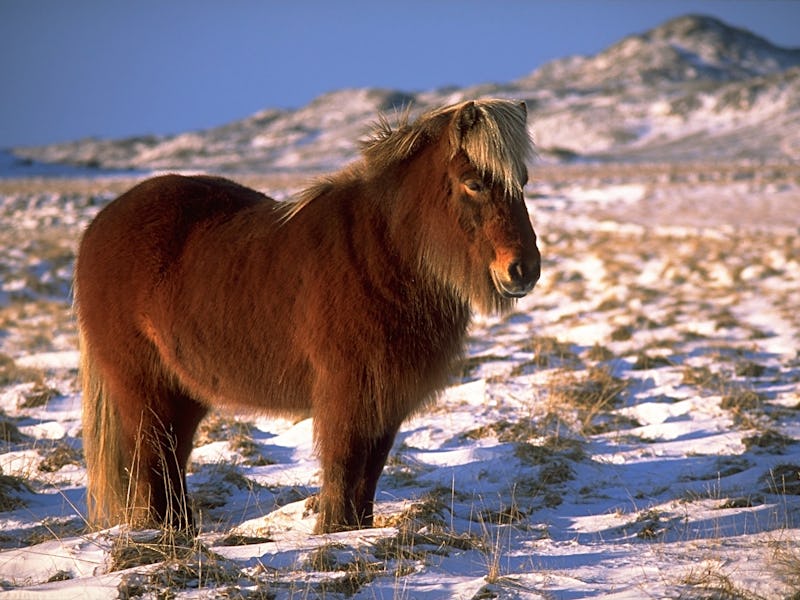Horses Are Sizing You up in the Shadiest Way Possible, Say Scientists
Yes, they are looking you up and down.

In the world of online dating, the first in-person encounter is a crucial moment in which we find out whether reality matches up with the expectations someone has carefully cultivated. Through photos and texts, we learn what to expect from someone, and we carry those expectations into a first meeting. And so do horses, it turns out.
In a paper published Thursday in the journal Current Biology, a team of animal cognition researchers present evidence that horses can recognize a person from a photo and form expectations about that person based on the person’s facial expression in the photo. By presenting horses with photographs of people making happy or angry facial expressions — a smile or a glare — and then measuring how they reacted when they confront the same person making a neutral face, researchers found that horses reacted differently to a person depending on whether the photo they’d seen had been happy or angry. This suggests that horses’ brains, like those of humans, can remember the faces of other animals and quickly determine, from memory, whether the person is a threat.
Researchers showed horses a picture of a person either smiling or glaring, then showed them the person in the flesh making a neutral expression. By measuring the horse's heart rate and how it tilted its head, the researchers found that horses seemed to remember the person's positive or negative affect from the photo.
This paper builds on a 2016 study, conducted by the same team of researchers at the University of Sussex, that described how humans can perceive when a horse is reacting positively or negatively. That study showed that horses can rapidly discriminate between happy and angry human facial expressions in photos, which they demonstrate by favoring their right eye or left eye, respectively. It also showed that horses react with an increased heart rate to angry facial expressions, suggesting that they could perceive the person to be a threat.
In the latest study, horses were given a photo of a person, and a few hours later they were shown the actual person. Reliably, the horses reacted to the neutral-faced person the same way they reacted to the photo of the person. To help prevent bias or emotional contamination by the human test subjects, the humans did not know whether the horse in front of them had seen a photo of them smiling or glaring. Therefore, the researchers conclude, the horse’s reaction is most likely from memory. In some situations, researchers also presented horses with a different person than the photo they were shown, just to test whether the horses’ reactions were really specific to each person. Indeed they were.
We already know a good amount about how dogs manipulate us with facial expressions and how ravens are smarter than children, but the fact that horses seem to form an attitude about a person from a photograph suggests that we have a lot to learn about these animals.
This paper adds to the growing body of knowledge on horse cognition, showing how these domestic animals are actually a lot more perceptive than we might assume. Let’s just hope they don’t judge our online avatars too harshly.